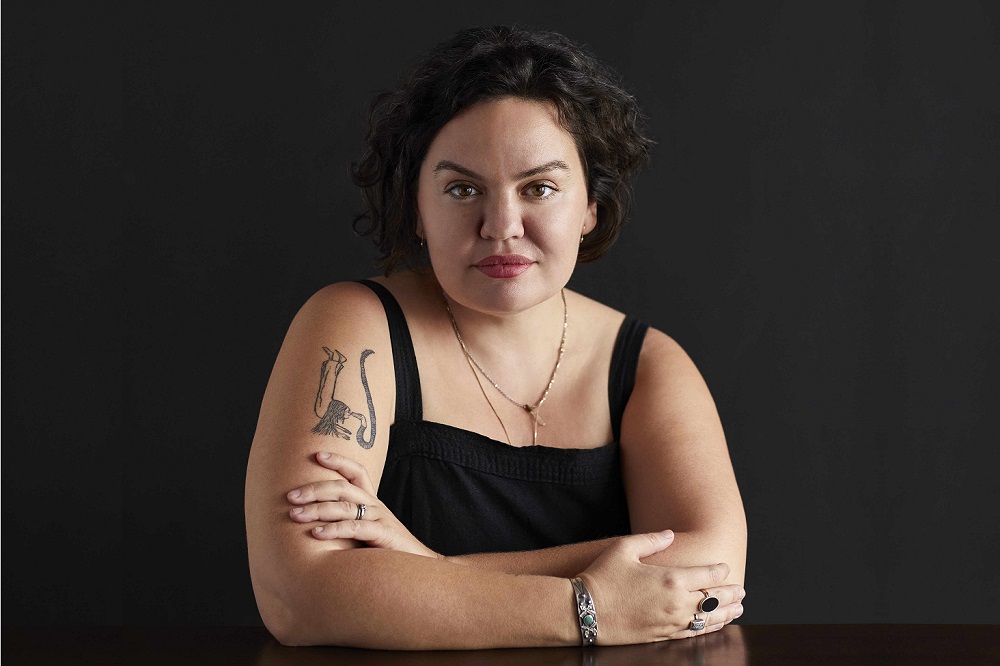Normally after Roxanna Asgarian, a Texas-based journalist, has one of her in-depth stories published in a major media outlet she feels finished, and ready to move to the next story.
But after reporting on a murder-suicide by two white parents who plunged off a northern California cliff in their SUV killing themselves and their six adopted Black children, her journalistic work didn’t feel quite done.
The tragedy had made national headlines, but to Asgarian, most of the articles focused on the white parents, Sarah and Jennifer Hart, and the pattern of alleged abuse and neglect that emerged after they murdered the adoptive children. Asgarian saw untold, important stories about the birth families and systemic failures of the child welfare system.
“I realized there is one larger story,” said Asgarian, who has written extensively on the child welfare system for outlets including the Washington Post and the Juvenile Justice Information Exchange. (The Juvenile Justice Information Exchange and Youth Today are both publications of the Center for Sustainable Journalism.)
For the next five years, Asgarian dove deep into the Hart murder-suicide. Her book, “We Were Once a Family: A Story of Love, Death, and Child Removal in America” will be published in March.
In an interview with Youth Today, Asgarian spoke about her upcoming book, and the emotional mark reporting it left on her.
The interview
Your book is about the Hart murder-suicide, and how the failings of the system at every level impacted these kids and their birth families. How did you get involved with this story?
In March 2018, the crash happened. A family of two white adoptive moms and six Black adopted children drove off a cliff in California and died. It was a big breaking news story and a lot of stuff was coming to light, including an alleged pattern of abuse by the mothers.
I got a call for a breaking news assignment to find and talk to the birth family of three of the kids. There were six children from two different families. We got the name from a court document and as I sought out the family I quickly realized what had happened to their family was sort of uniquely awful. They hadn’t heard anything about their kids and had no idea what had been happening to them. There was a lot of shock, and a lot of grief. I wrote that story up and then I said there’s definitely enough here for a deeper story beyond breaking news.
You broke the news about the deaths to one of the birth families.
I did break the news to the second birth family [the adopted children came from two different birth families, but only one had heard the news of their deaths] who didn’t know six months after it happened. That was in October after CNN and New York Times and all these people had written all about the case. But no one had told them so they didn’t know.
What was that like for you as a reporter to break the news to the family?
It was a huge bummer. It also made me really angry. These families were treated without any dignity or respect. And this was sort of an extension of all of their experiences with officials. But it was a particularly striking moment in that it was the worst possible thing that you could think of happening to your kids and no one would call to let you know that. There’s no law that says anyone has to; they have been legally severed from their kid and have no legal relationship. But that feels so inhumane.
I imagine that reporting on the child welfare system you came across many pretty tragic stories. What stuck out about this one in particular that made you want to turn it into a book?
This was a failure of the child welfare system across several different jurisdictions. There was such a very obvious race component. The way that the birth families were treated and the way that the adopted family was treated was so different, and it was very blatant. Three of the children who died had an older brother, Dante, who wasn’t adopted and grew up in the child welfare system. That was another way to talk about the failures and brutality of the system. He’s still alive but had a very hard childhood. For those reasons, I felt that this story was a really perfect way to talk about all the failures of the child welfare system.
My major goal for writing the book is that I want people to have a deeper understanding of why the system doesn’t work. The second reason was that people were writing this story about the Hart family and ignoring all of this stuff about the birth families and about the child welfare system that I felt was so important to the story as a whole. They were making it this very individualized, crazy story. When it was more to me a failure of not just these women, who did these heinous things, but of a system that really failed these kids at every turn.
Over the five years you worked on this book, you formed closer relationships with your sources than is typical for you as a reporter. Was having personal connections to your sources tricky to navigate?
I did feel like I was sort of out there on my own trying to navigate what I felt was ethical. For instance, I developed a relationship with Doug Hart, who’s the father of Jen Hart, who drove the kids off a cliff. We started talking because the birth families really wanted to have the ashes of their children. But they have no legal tie to their children. The next of kin was the parents of Jennifer and Sarah. After a year or so, I went to South Dakota and brought back some of the remains of the kids to give to their birth families. That process was not in any journalism class I ever took. But because the situation was so strange, I was the only person in contact with all these people. It was definitely not within the bounds of my role as a journalist, but I felt that it was the right thing to do as a person.
During your reporting of the book, was there anything that happened you really didn’t expect?
When I reached out to Doug Hart, I was not expecting a response, to be honest. We’ve developed a nice relationship over these years. He’s grieving and feeling a lot of really complicated emotions about his daughter and his parenting. I didn’t expect him to be so self-reflective about that. He was also very supportive of giving the birth families the ashes of their children.
You’re at The Texas Tribune now covering law and courts. Why did you switch from freelancing?
I needed a little break from freelancing to get back in the right financial shape. I was also very exhausted by my child welfare reporting at this point.
Like you were burned out; the book had taken an emotional toll?
Yes, definitely. I’ve never written a book and it took all of my juice I guess you could say.
Are you just taking a break from child welfare reporting and planning to get back into it at a later point?
I know I need a break for sure. But I’m not sure if I’m done forever or just for a period of time.
The details
Residence: Dallas
Family: Married with a 6-year-old and 14-year-old cat named Charles
Title: Law and courts reporter, The Texas Tribune
Hobbies: Gardening: vegetables, flowers, herbs
Recent reads: “Strangers to Ourselves: Unsettled Minds and the Stories That Make Us,” by Rachel Aviv
First paid job: Hostess at a pizza restaurant while in college
Education: Bachelor’s degree in journalism, University of Texas at Austin; master’s degree in journalism, CUNY Graduate School of Journalism
***
Brian Rinker is a San Francisco-based freelance writer and journalist. He covers public health, child welfare, digital health, startups and venture capital. His work has been published by Kaiser Health News, Health Affairs, The Atlantic, Men’s Health and San Francisco Business Times. Brian received master’s degrees in journalism and public health from UC Berkeley.




























